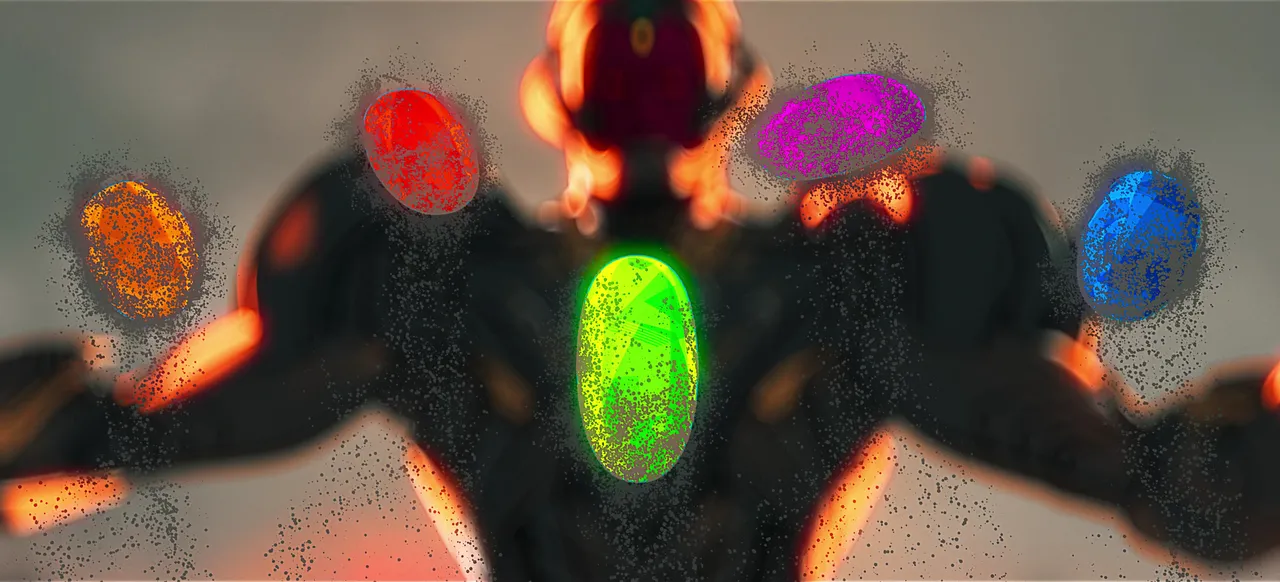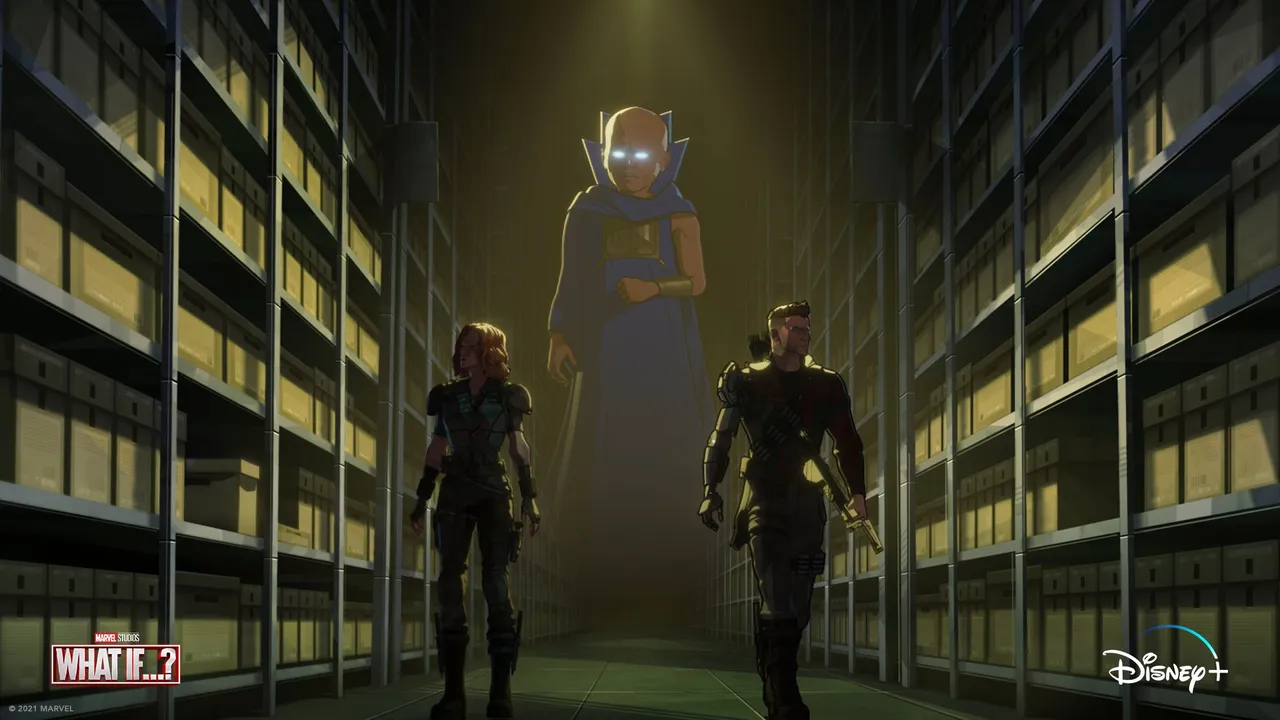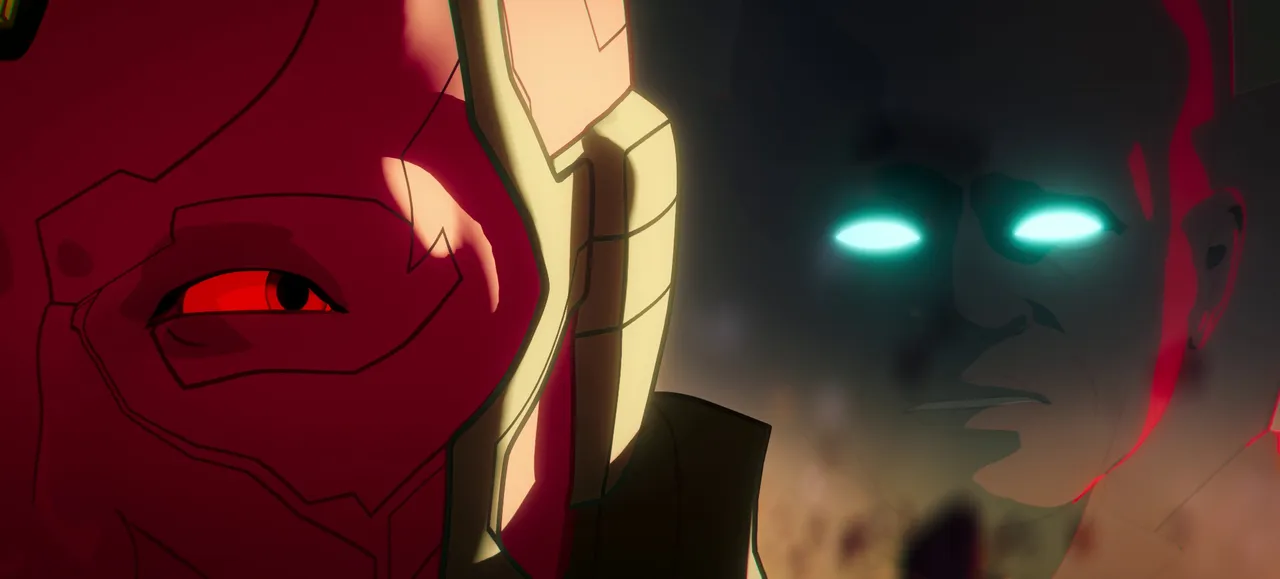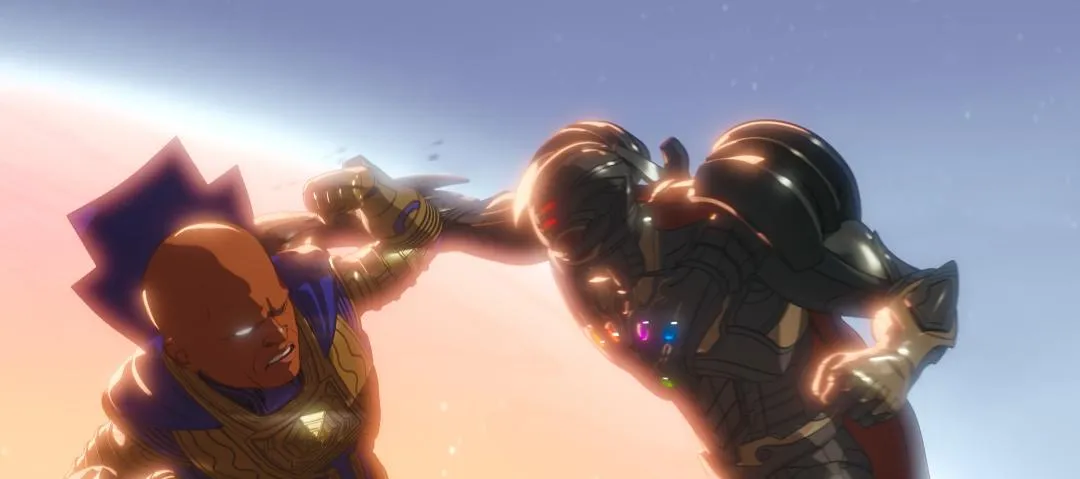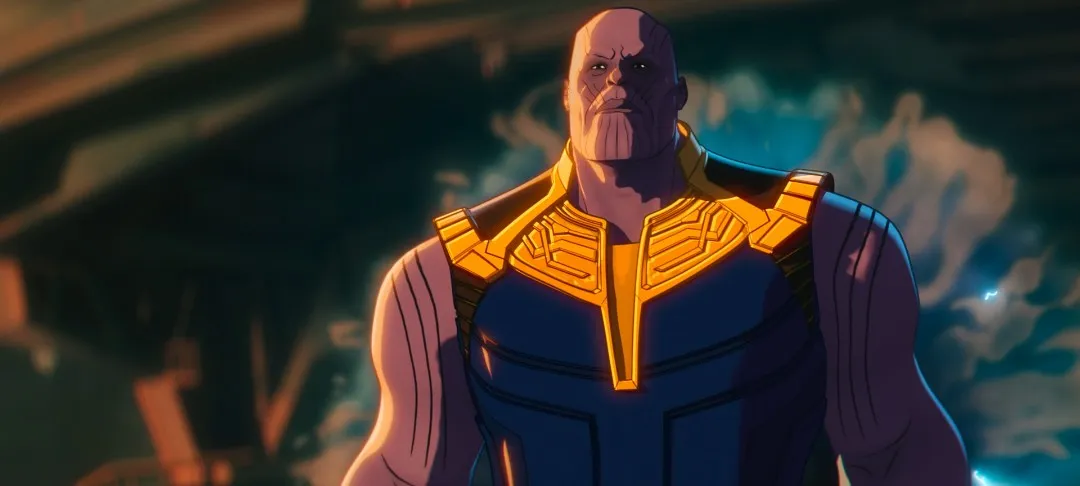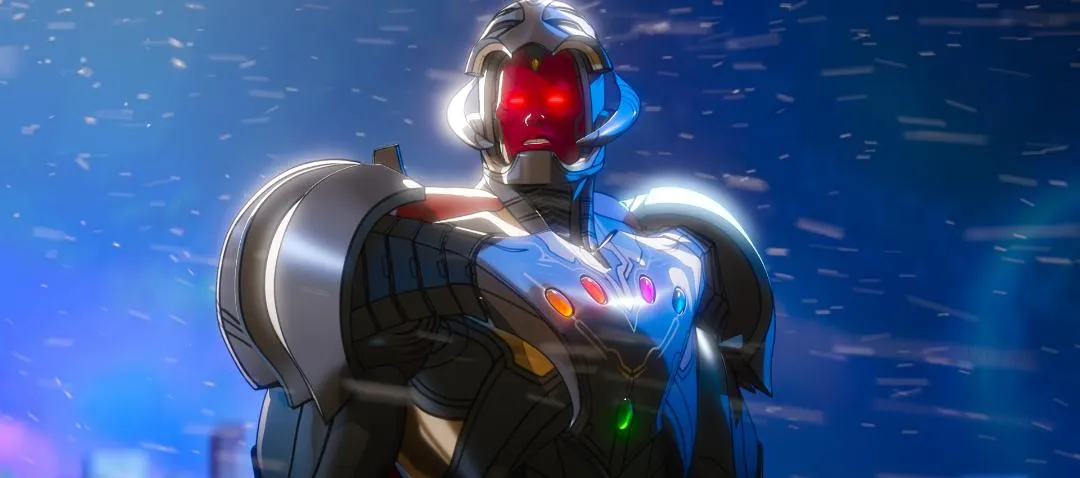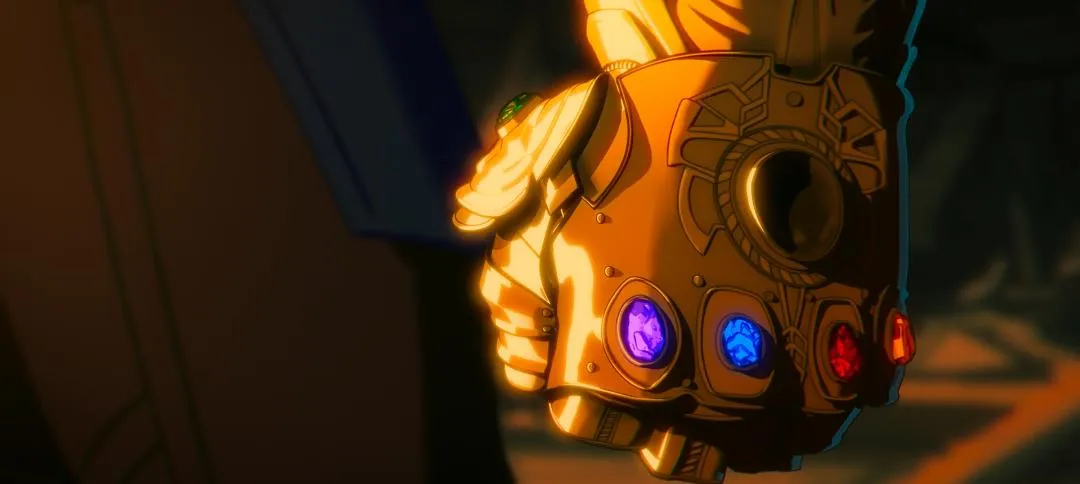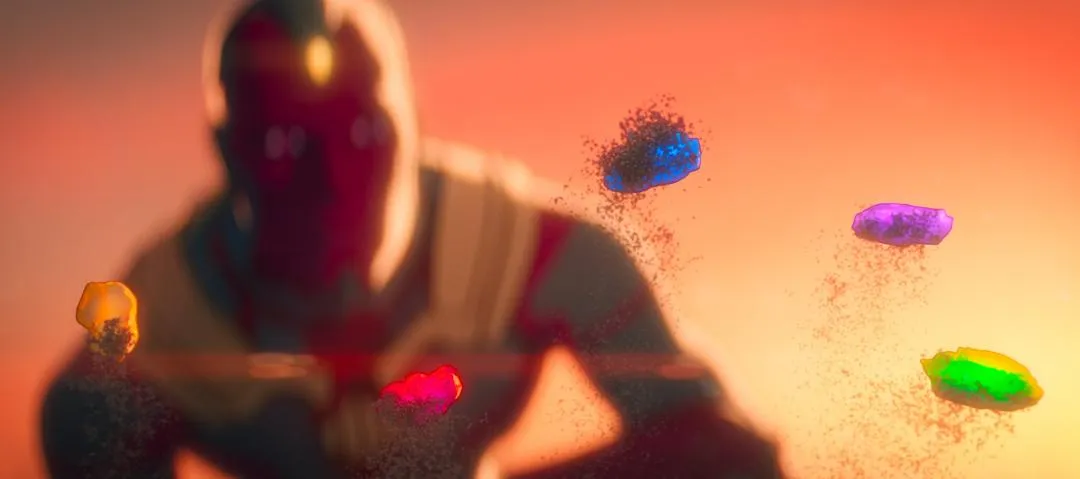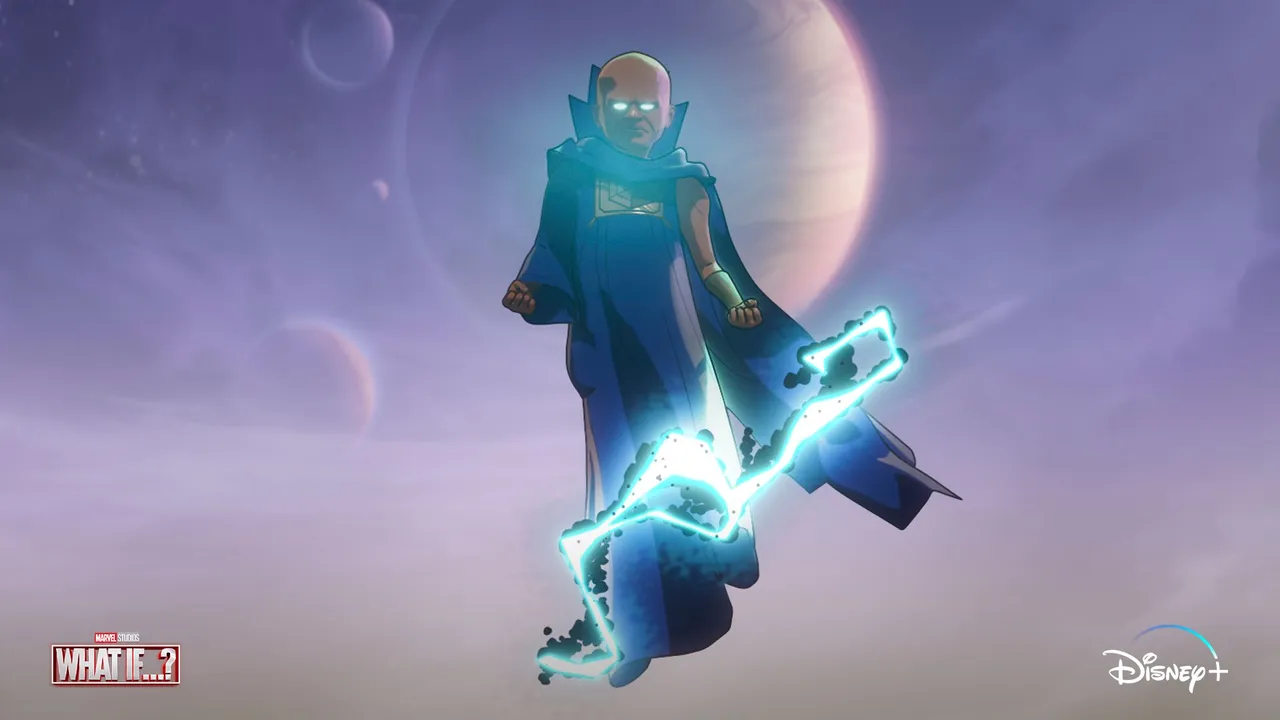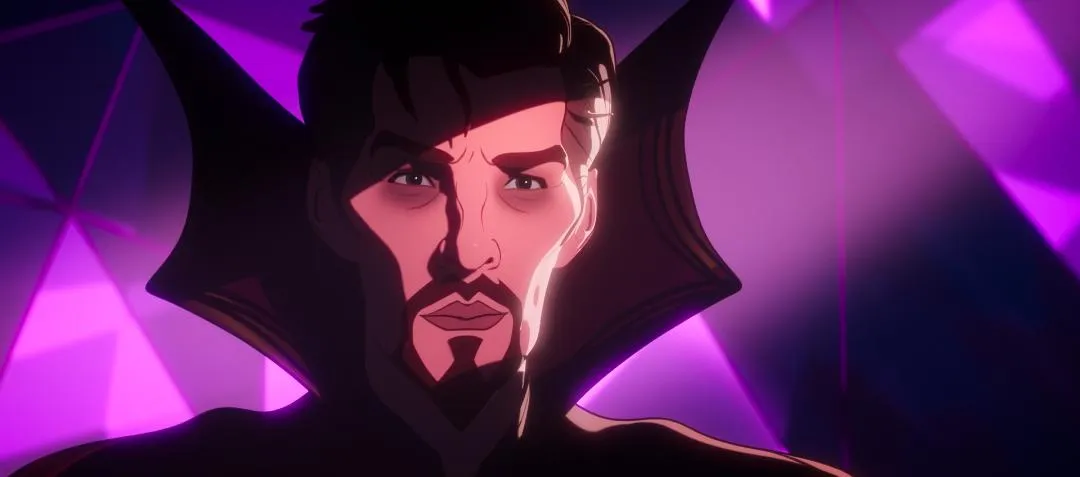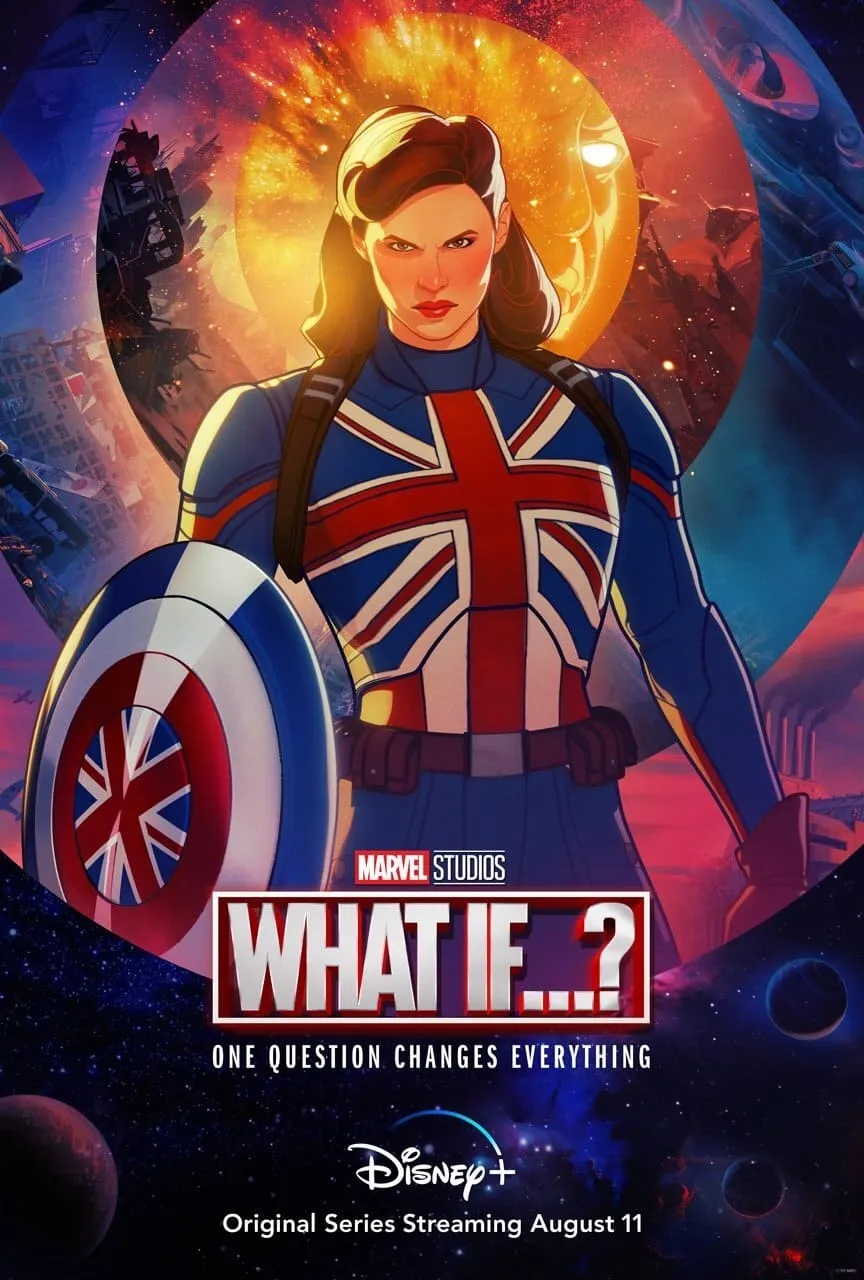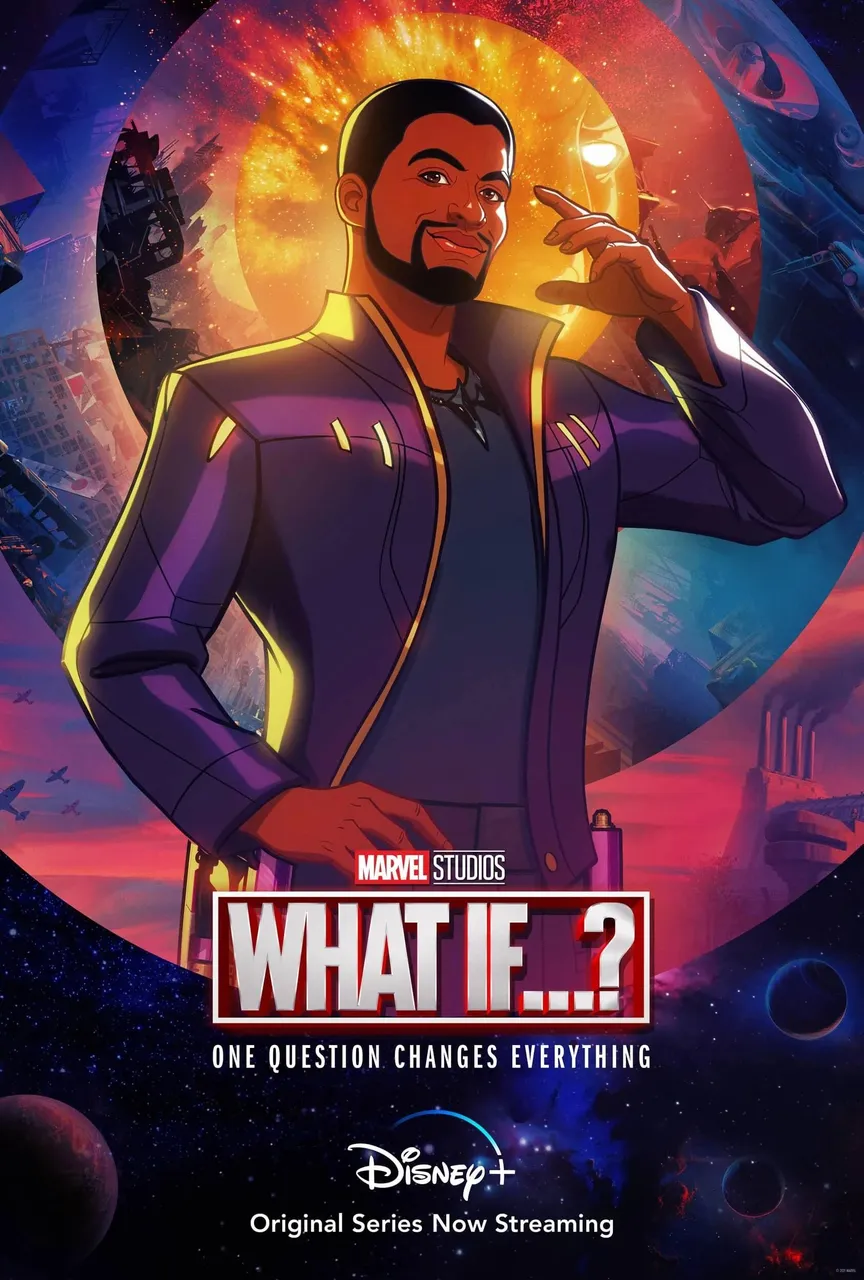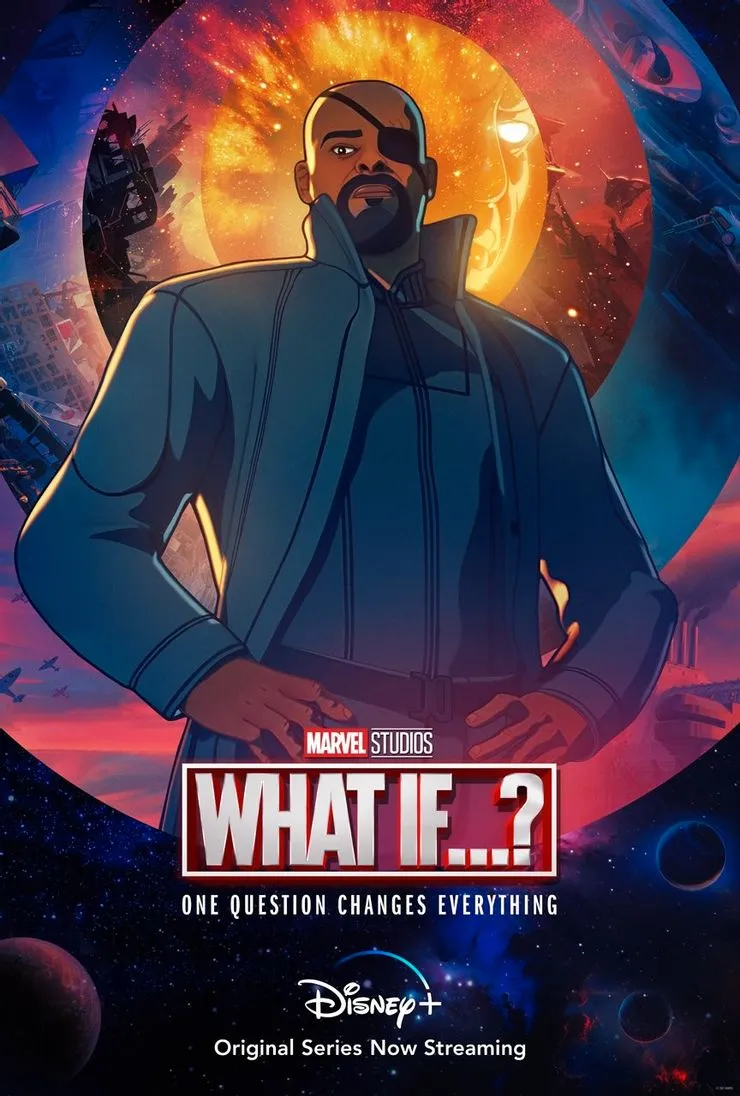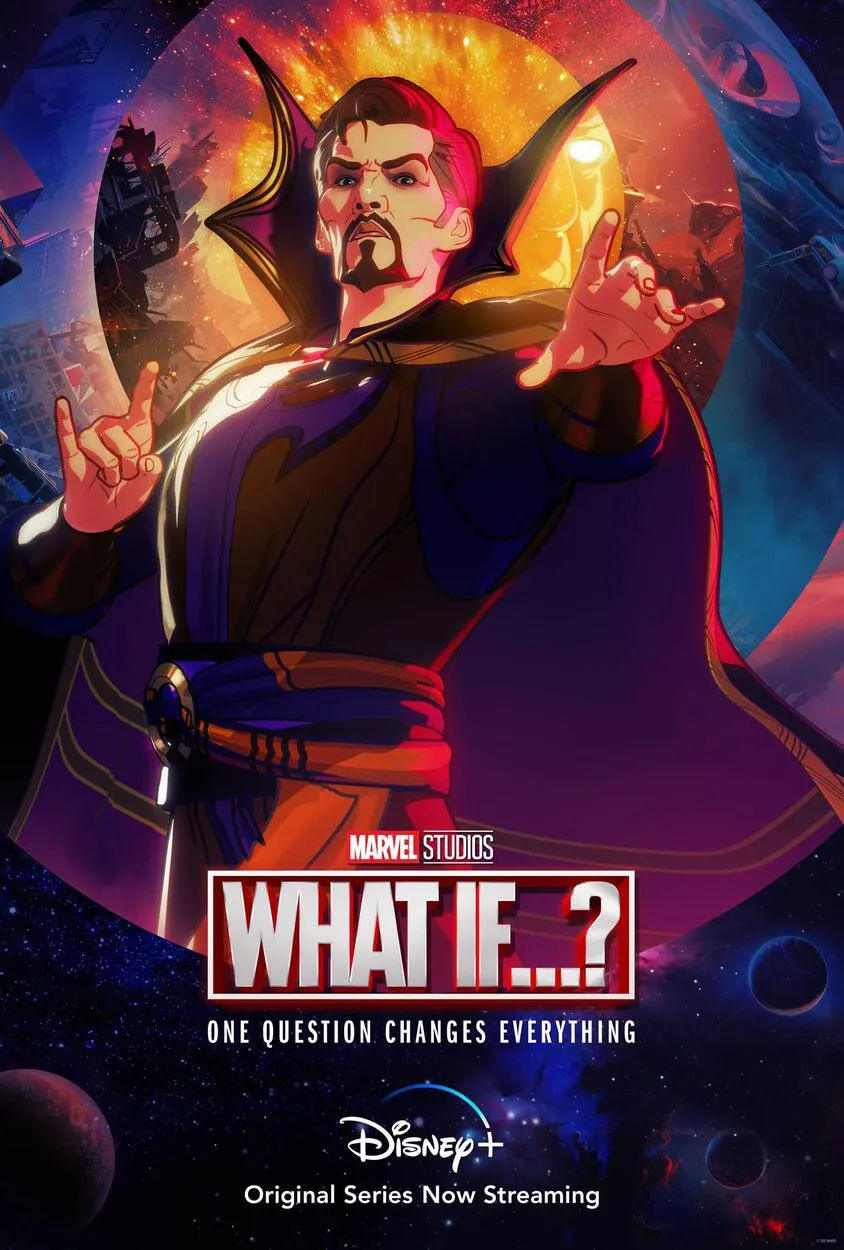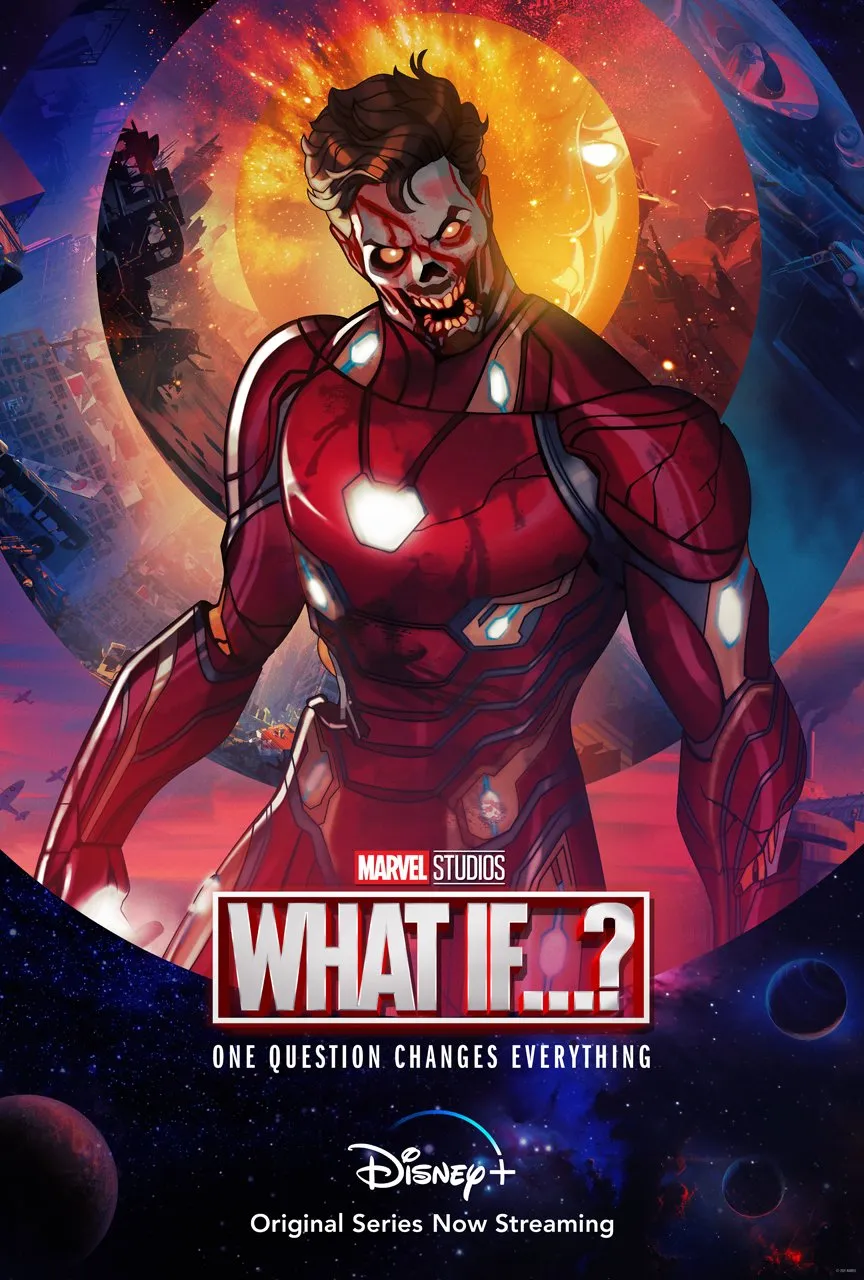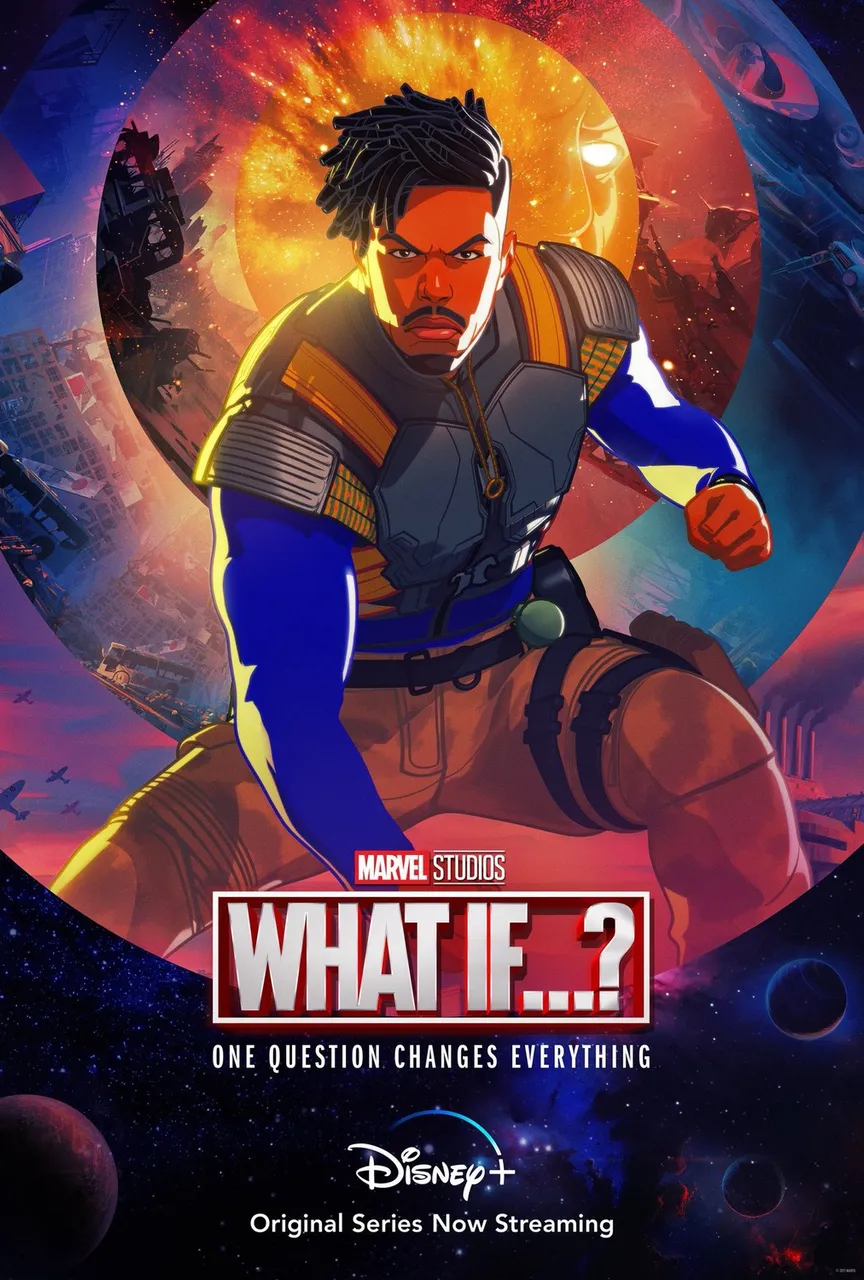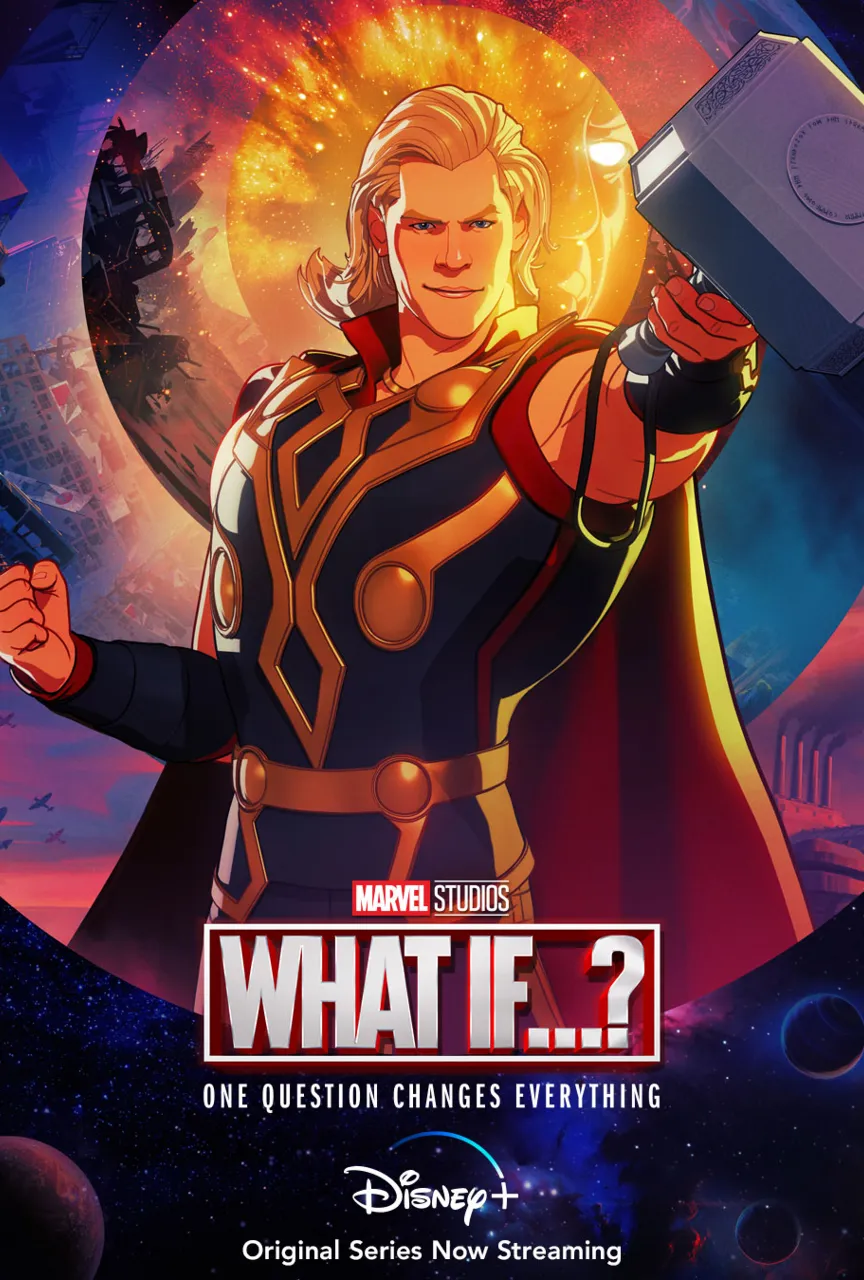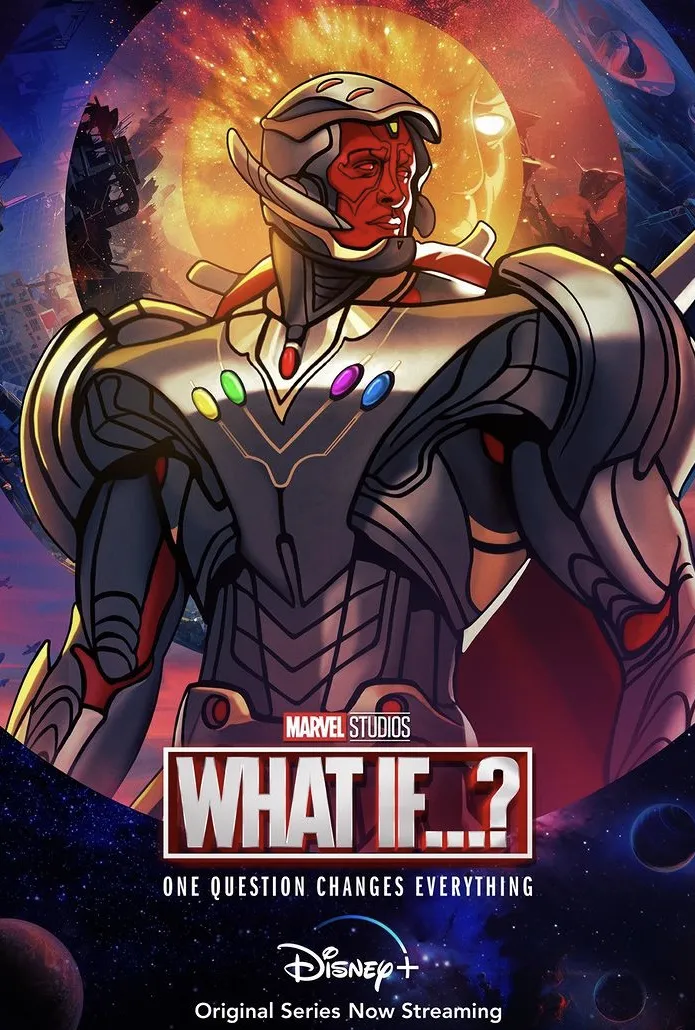Tras otro tiempo sin escribir sobre los episodios finales de "What If...?", vengo hoy a reseñar el penúltimo episodio de esta antología multiversal, si es que el término de "antología" aún aplica, pues los acontecimientos de este episodio se alejan del simple "contar otra historia más" y pasan a centrarse en el punto que unía todas las demás historias, es decir, el multiverso en sí y el Vigilante, narrador de los episodios anteriores que se dedicaba a observar los universos y sus sucesos.
En "What If... Ultron Won?" tenemos una historia conectada con los acontecimientos de "Avengers: Age of Ultron", donde el androide creado por Stark busca evolucionar hasta convertirse en un ser imparable y, a diferencia de la película, lo logra en esta historia alterna. Con su nuevo poder, Ultron logra poseer las gemas del Infinito y consigue el poder suficiente para salir de su universo, convirtiéndose así en una amenaza para el multiverso entero y en una gran preocupación para el Vigilante, quien hasta ahora sólo se limitaba a observar los acontecimientos sin interferir.
After another time without writing about the final episodes of "What If...?", I come today to review the penultimate episode of this multiversal anthology, if the term "anthology" still applies, as the events of this episode move away from simply "telling yet another story" to focus on the point that tied all the other stories together, namely the multiverse itself and the Watcher, the narrator of the previous episodes who was dedicated to observe the universes and their events.
In "What If... Ultron Won?" we have a story connected to the events of "Avengers: Age of Ultron", where the android created by Stark seeks to evolve into an unstoppable being and, unlike the movie, he succeeds in this alternate history. With his new power, Ultron manages to possess the Infinity Stones and gets enough power to get out of his universe, thus becoming a threat to the entire multiverse and a great concern for the Watcher, who until now only limited himself to observe the events without interfering.
El clímax de una multi-historia
Este episodio se centra principalmente en cuatro protagonistas, por un lado están Natasha Romanoff y Clint Barton, Vengadores sobrevivientes al apocalipsis que ha generado Ultron que buscan cualquier esperanza para detener al androide, por otro lado está Ultron, quien se encuentra por un mundo por gobernar cada vez más grande y, por último, tenemos al Vigilante, quien por primera vez tendrá que elegir entre cumplir su juramento de no interferir con la historia de ese universo o permitir que Ultron alcance todo su potencial y expanda su reinado a lo largo del multiverso.
El episodio en sí funciona bastante bien, pues sin romper el concepto antológico de la serie, centra su trama en el único personaje que ya habíamos visto en todos los demás episodios y lo coloca en una situación compleja que logra captar la atención del espectador como un golpe sorpresa (Haya sido o no previsible la situación de un crossover de universos). De este modo, a pesar de que la serie no era una historia contada de forma estrictamente lineal o interconectada, el episodio logra convertirse en una especie de clímax de esta primera temporada, gracias a la fuerza y la tensión de sus acontecimientos.
The climax of a multi-story
This episode focuses mainly on four protagonists, on the one hand there are Natasha Romanoff and Clint Barton, Avengers survivors of the apocalypse generated by Ultron who are looking for any hope to stop the android, on the other hand there is Ultron, who finds himself in an ever-growing world to rule, and finally, we have the Watcher, who for the first time will have to choose between fulfilling his oath not to interfere with the history of that universe or allowing Ultron to reach his full potential and expand his reign throughout the multiverse.
The episode itself works quite well, as without breaking the anthological concept of the series, it focuses its plot on the one character we had already seen in all the other episodes and places him in a complex situation that manages to capture the viewer's attention as a surprise hit (whether or not the situation of a crossover of universes was foreseeable). Thus, despite the fact that the series was not a story told in a strictly linear or interconnected way, the episode manages to become a sort of climax of this first season, thanks to the strength and tension of its events.
La verdadera Era de Ultron
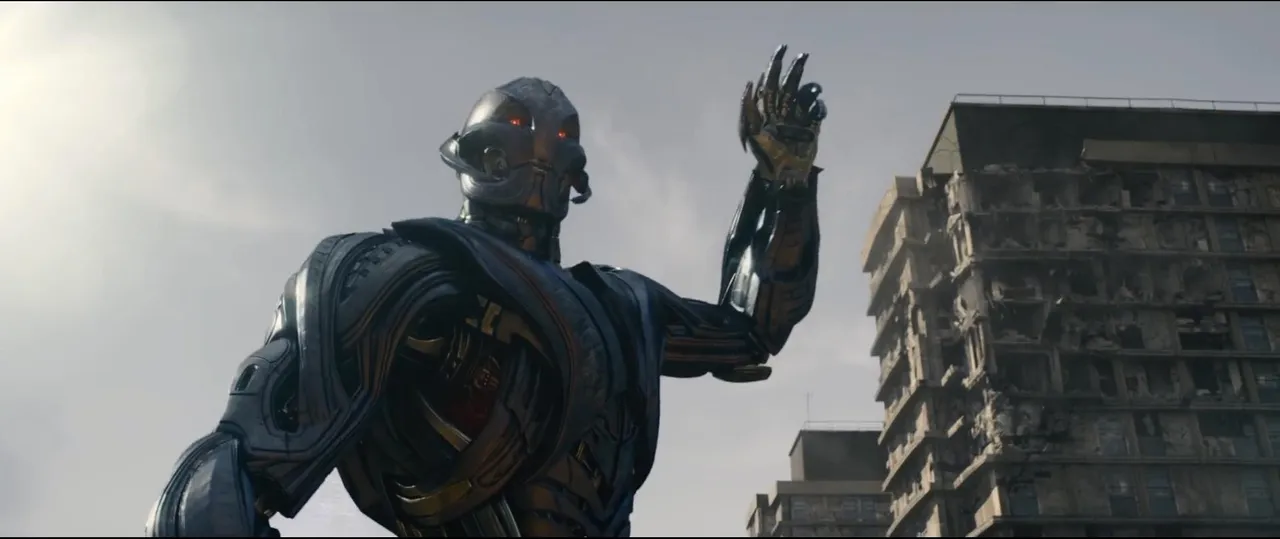
Por otro lado, el personaje de Ultron consigue en este episodio una segunda oportunidad de mostrar su potencial como villano, tras la decepción que generó su papel en Avengers: Age of Ultron. La película llegó a recibir críticas por la reimaginación del personaje como un hijo de Stark que hereda además su sarcasmo, en lugar del villano serio, profundo y filosófico que era en los cómics de Marvel (En los que además, es creado por Hank Pym en lugar de Tony Stark). Incluso cosas como el título "Age of ultron" para una película cuya historia se desarrolla en un par de días resultó objeto de burlas, pues aunque el nombre es tomado de los cómics también, resultaba absurdo titular así a la historia de esta película. Finalmente, Ultron se acabó convirtiendo en otro ejemplo de "villanos mal aprovechados por Marvel Studios" y su personaje quedó parcialmente en el olvido, o al menos, hasta que What If...? salió.
En What If... Ultron Won?, Ultron logra dar vida a una verdadera Era de Ultron, conquistando al mundo en su totalidad tras haber ganado su guerra contra los Vengadores. Esto no sólo logra dar sentido al nombre "Era de Ultron", sino que además, da la oportunidad de explorar más a profundidad al villano.
Tras conseguir control absoluto sobre la Tierra, la película combina sus acontecimientos con los de Avengers: Infinity War, mostrando a Thanos llegar a la Tierra en busca de la Gema Mente que porta Ultron, sin saber que éste lograría matarlo apenas llegue. Este hecho lleva al androide a su siguiente nivel, pues al conseguir las seis gemas del infinito tras robarle las demás a Thanos, supera por completo sus poderes y adquiere conocimiento sobre el resto del universo.
De este modo, Ultron inicia un viaje por gobernar sobre todo el universo, todo bajo su programación de "traer la paz al mundo, eliminando a los humanos para evitar que disturben esa paz".
Así, esta historia logra aprovechar mejor el potencial del personaje al darle el papel de triunfador y verlo avanzar en su creciente conquista.
The real Age of Ultron
On the other hand, the character of Ultron gets in this episode a second chance to show his potential as a villain, after the disappointment generated by his role in Avengers: Age of Ultron. The film came to receive criticism for the reimagining of the character as a son of Stark who also inherits his sarcasm, instead of the serious, deep and philosophical villain he was in the Marvel comics (In which, moreover, he is created by Hank Pym instead of Tony Stark). Even things like the title "Age of ultron" for a movie whose story takes place in a couple of days were mocked, because even though the name is taken from the comics as well, it was absurd to title the story of this movie that way. Ultimately, Ultron ended up becoming another example of "villains misused by Marvel Studios" and his character was partially forgotten, or at least, until What If...? came out.
In What If... Ultron Won?, Ultron manages to bring to life a true Era of Ultron, conquering the world in its entirety after winning his war against the Avengers. This not only gives meaning to the name "Age of Ultron", but also gives the opportunity to explore the villain in more depth.
After gaining absolute control over the Earth, the film combines its events with those of Avengers: Infinity War, showing Thanos arriving on Earth in search of the Mind Stone carried by Ultron, unaware that the latter would manage to kill him as soon as he arrives. This fact takes the android to his next level, for by obtaining the six Infinity Stones after stealing the others from Thanos, he completely surpasses his powers and acquires knowledge about the rest of the universe.
Thus, Ultron begins a journey to rule over the entire universe, all under his programming to "bring peace to the world, eliminating humans to prevent them from disturbing that peace."
In this way, this story manages to take better advantage of the character's potential by giving him the role of the victor and seeing him advance in his growing conquest.
Una serie mal vinculada al resto de la saga
"What If...?", a pesar de contar historias basadas en universos alternos, se supone que es todo centrado en un mismo multiverso, es decir, estas historias están conectadas con las películas del UCM. Esto mismo es explicado en la serie, donde se nos cuenta que son historias alternas a la historia que conocemos, no obstante, por la corta duración de estas historias, muy seguido nos encontramos con puntos que acaban teniendo alguna incongruencia en relación con la historia original.
¿Por qué esto es importante? Porque muy seguido la serie se centra en que conozcamos la historia de las películas para que entendamos porqué ocurre algo en el episodio, si haces dicha vinculación pero fallas al hacerla, generando incongruencias con las películas, acabas quitando coherencia a la historia.
Tomando como ejemplo este episodio, las principales dos preguntas que podemos hacernos son ¿En qué momento se desarrolla realmente esta historia? y ¿Cómo Thanos consigue cinco Gemas del Infinito?
Sobre esa última pregunta, podemos empezar con que la Gema Tiempo ya se encontraba en la Tierra, pues al no existir los Vengadores, éstos no podrían llevar dicha gema a Titán ¿Entonces Thanos había llegado antes de aparecer frente a Ultron, para quitársela a los hechiceros? De ser así ¿Por qué Ultrón no percibiría su presencia a través de alguno de sus droides? (Sin mencionar que si Thanos hubiera llegado antes, habría notado el estado del planeta y el poder de Ultron).
Pero para pasar a una pregunta menos profunda ¿Cómo Thanos consiguió las gemas poder y espacio? Originalmente Thanos invadía Xandar y la nave Asgardiana para conseguirlas, sin embargo, más tarde en el episodio, Ultron llega a ambos sitios y se encuentran aún a salvo. Entonces ¿Cómo hizo Thanos?
Y si aún parece que estoy detallando mucho, aún queda una aún más incoherente ¿Cómo Thanos consigue la gema alma, si Gamora sigue con vida? Cuando Ultron invade Los Soberanos, los Guardianes de la Galaxia se encuentran defendiendo el sitio tal como en Guardians of the Galaxy Vol. 2 ¿Pero eso no fue cuatro años antes de que Thanos sarificara a Gamora para obtener la gema en el UCM? ¿Entonces cómo la consigue en esta historia?
Estos elementos podrán parecer poco importantes, pero acaban afectando la credibilidad de esta historia y su cohesión con el resto de la franquicia (La cual, fuera de esta serie, suele estar muy bien estructurada y cuidada)
A series poorly linked to the rest of the saga.
"What If...?", despite telling stories based on alternate universes, it is supposed to be all centered in the same multiverse, that is, these stories are connected to the movies of the MCU. This itself is explained in the series, where we are told that these are alternate stories to the story we know, however, due to the short duration of these stories, very often we find points that end up having some incongruence in relation to the original story.
Why is this important? Because very often the series focuses on us knowing the story of the movies so that we understand why something happens in the episode, if you make such linkage but fail to do it, generating incongruities with the movies, you end up removing coherence to the story.
Taking this episode as an example, the main two questions we can ask ourselves are: At what point does this story really take place, and how does Thanos get five Infinity Stones?
On that last question, we can start with that the Time Stone was already on Earth, since in the absence of the Avengers, they could not take said stone to Titan. So Thanos had arrived before appearing in front of Ultron, to take it from the wizards? If so, why wouldn't Ultron sense their presence through one of his droids? (Not to mention that if Thanos had arrived earlier, he would have noticed the state of the planet and the power of Ultron).
But to move on to a shallower question, how did Thanos get the power and space stones? Originally Thanos invaded Xandar and the Asgardian ship to get them, however, later in the episode, Ultron arrives at both sites and they are still safe. So how did Thanos do?
And if it still seems like I'm detailing too much, there's still an even more incoherent: How does Thanos get the Soul Stone, if Gamora is still alive? When Ultron invades The Sovereigns, the Guardians of the Galaxy find themselves defending the site just like in Guardians of the Galaxy Vol. 2 But wasn't that four years before Thanos sarificates Gamora to get the stone in the MCU? So how does he get it in this story?
These elements may seem unimportant, but they end up affecting the credibility of this story and its cohesion with the rest of the franchise (Which, outside of this series, is usually very well structured and well cared for).
Conclusión
Como mencioné al inicio, pese a sus fallos e inconsistencias, el episodio logra transmitir emoción, interés y una sensación de que estás viendo algo más grande que lo que venía ocurriendo hasta el momento. La batalla entre Ultron y el Vigilante logra demostrar su peso en la trama, además de que, a pesar de que uno podía imaginarse que Marvel buscaría hacer algún tipo de cierre épico con las historias mostradas antes, igualmente se siente cierta satisfacción al momento de descubrir cómo.
Sin embargo, debo admitir que cierto sabor agridulce llegó a mí con el cierre del episodio, donde se nos adelanta que el Vigilante pedirá ayuda a los protagonistas de las historias de los capítulos anteriores para vencer a Ultron. ¿Qué me disgusta de eso? Principalmente saber que la intención de la serie siempre fue crear un nuevo equipo de superhéroes para esta franquicia, más que aprovechar el concepto de las realidades alternas para contar las historias que en la saga principal no podrías.
De todos modos, este último punto es algo que trataré de forma más completa en mi próxima reseña de What If...?, donde hablaré del último episodio de esta serie, titulado "What If... the Watcher Broke His Oath".
Conclusion
As I mentioned at the beginning, despite its flaws and inconsistencies, the episode manages to convey excitement, interest, and a sense that you're watching something bigger than what had been happening so far. The battle between Ultron and the Watcher manages to demonstrate its weight in the plot, plus, despite the fact that one could imagine that Marvel would seek to make some kind of epic closure with the stories shown before, you still feel some satisfaction at the moment of discovering how.
However, I must admit that a certain bittersweet taste came to me with the closing of the episode, where we are given a preview that the Watcher will ask for help from the protagonists of the stories of the previous chapters to defeat Ultron. What do I dislike about that? Mainly knowing that the intention of the series was always to create a new team of superheroes for this franchise, rather than taking advantage of the concept of alternate realities to tell the stories that in the main saga you couldn't.
Anyway, this last point is something I'll address more fully in my next review of What If...?, where I'll talk about the last episode of this series, titled "What If... the Watcher Broke His Oath".
¡Gracias por leer! Es bienvenido cualquier comentario que quieran dejar, adjunto aquí abajo los links de las anteriores reseñas de la serie.
Thank you for reading! It's welcome every comment you want to leave, I put here the links of the previous reviews of the series.

